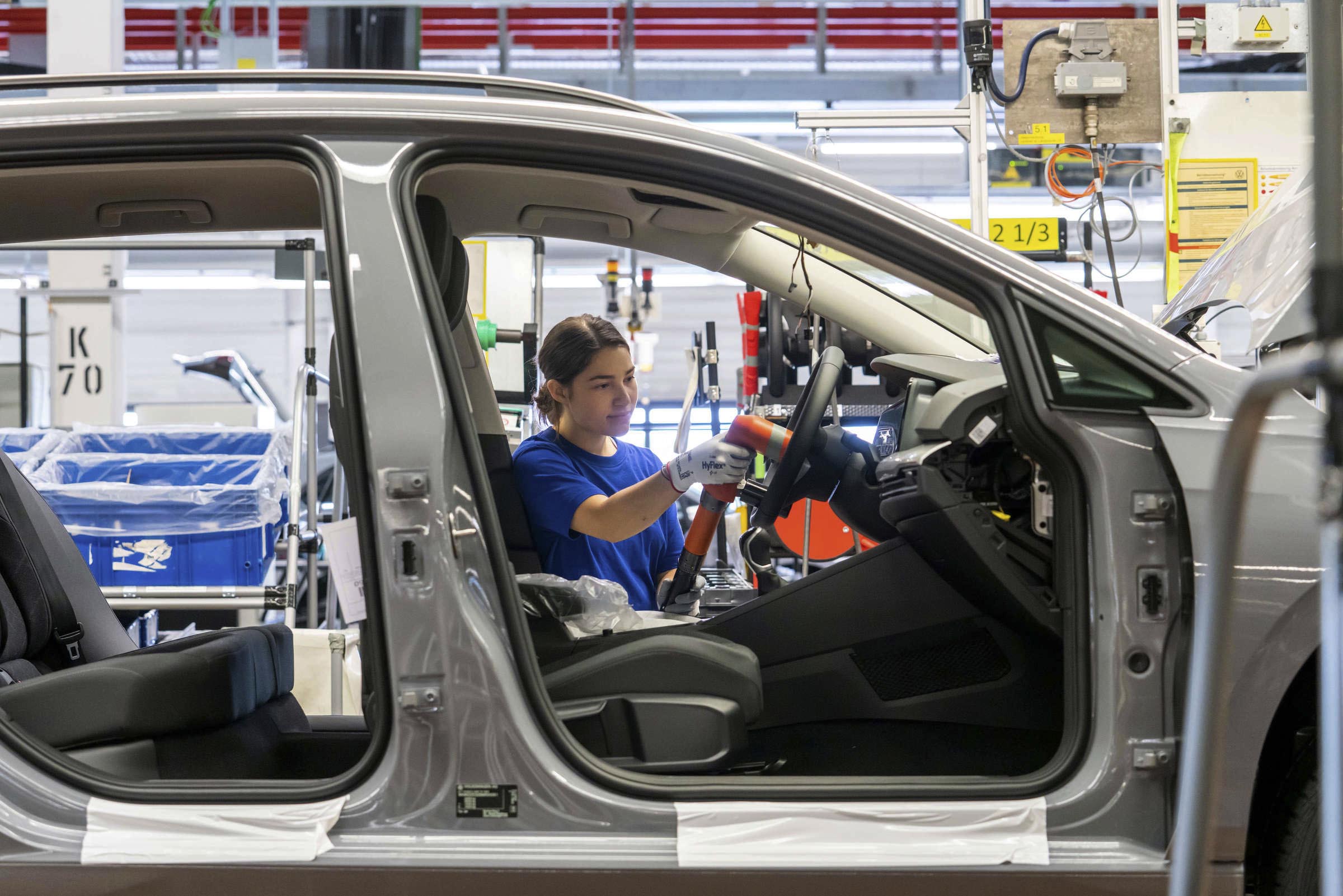The iconic Volkswagen brand is facing major problems that make it “no longer competitive,” the automaker told its staff on Monday, and that has triggered a 10 billion euro, or $10.9 billion, cost saving program that will include job cuts.
Volkswagen is in the midst of a transition from internal combustion engines to battery-electric propulsion, something requiring it to invest billions of dollars annually, but its also struggling with the reality of low productivity and operating margins. And that’s forcing it to make some major cost reduction moves.
“With many of our pre-existing structures, processes and high costs, we are no longer competitive as the Volkswagen brand,” brand chief Thomas Schaefer said during a staff meeting. Details of the gathering were subsequently posted on VW intranet and then leaked to various media.
High sales, low margins
Parent Volkswagen Group is one of the world’s two largest automakers by sales, company officials last month forecasting volumes will fall between 9 million and 9.5 million for all of 2023 — while revenues are expected to climb 10% to 15% above the total last year. As with other manufacturers, the company was constrained by ongoing shortages of semiconductors and other critical components since COVID struck.
The Group is made up of 10 individual marques, from entry-level Skoda to exotics like Porsche, Lamborghini and Bentley. An 11th, Scout, is currently preparing for a 2026 launch. The Volkswagen brand is the largest by raw sales volumes, but it has also suffered from the lowest profit margins among the group, at just 3.6% for all of 2022.
In a recent presentation to investors, management set a goal of boosting the VW brand’s margins to 6.5% by 2026.

VW officials announced plans for an $11 billion cost cutting program at the automaker’s Wolfsburg headquarters.
Headcount reduction in the works
To get there, VW aims to take a number of steps to improve productivity and lower costs. Among other things, that will include a headcount reduction.
The automaker previously pledged not to dismiss any employees until 2029 but it now plans to offer workers the option of partial or full early retirement, human resources director Gunnar Kilian said during the meeting on Monday,
“We need to finally be brave and honest enough to throw things overboard that are being duplicated within the company or are simply ballast we don’t need for good results,” he said.
Union pushback
No specific figures on the headcount reduction were released, according to the posting on the VW Intranet site. Final numbers likely will depend on negotiations with various labor groups, including IG Metall, the powerful union which represents German employees and holds seats on VW’s management board.
The company is hoping to take advantage of what it described as a “demographic curve” where a sizable chunk of its German workforce are already approaching retirement age.
The entire Volkswagen Group is facing a series of challenges as it amps up its electrification program. Currently, it costs more to build an EV than a comparable vehicle using an internal combustion engine. But manufacturers are facing pushback from consumers over higher retail prices.
EVs expected to cost jobs
At the same time, automakers like Volkswagen hope to take advantage of the fact that EVs are simpler to build and can be assembled with a smaller workforce. The threat to jobs was one of the major issues that triggered a seven-week strike by the United Auto Workers Union against the Detroit Big Three automakers.
IG Metall has pressed VW to rethink its commitment to EVs due to the impact on jobs.






0 Comments